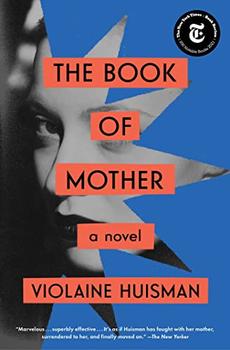Summary | Excerpt | Reviews | Beyond the Book | Readalikes | Genres & Themes | Author Bio

A Novel
by Violaine Huisman
When Maman came back to us, her mind still hazy and dark, she confessed that she was the one who had forbidden us to visit her in the hospital. She justified it by saying that she feared that seeing her there would traumatize us. In the midst of total collapse, she had held on to her position, her role as mother, her dignity and authority. Whatever else happened, she had to remain a mother, she couldn't let go of that. I pictured the psychiatric hospital—the hospital, not the clinic, an important distinction—as it had appeared to me on-screen a short time after her departure (when her diagnosis was repeated to me at every turn, your mother is ill, your mother is manic-depressive, your mother is ill, mentally ill) in One Flew over the Cuckoo's Nest, which happened to be on television just then. That the parents of the friend with whom I was staying at the time allowed me to watch this film, dazed and numb with fear as I was, no longer surprised me. Clearly, the adults surrounding us were either scatterbrained and irresponsible, or blind, or overwhelmed. A bunch of morons! Maman might have said. Her descriptions of psychiatric treatment matched in every detail the treatment Jack Nicholson received, at least as I recall it. I have never watched that film again.
Once home, Maman would frequently ask us to forgive her for having yet again almost set fire to the kitchen by allowing the strange stew that was supposed to be our dinner burn. It was the fault of those damn antipsychotics, she said, she couldn't get over them, they'd leached her brain, it was all scrambled inside, there was too much static on the line. We told her it didn't matter, don't worry, above all don't beat yourself up over such a small thing, we couldn't care less about dinner. It's no big deal, Maman. Don't cry, Maman, it's no big deal! She burst into tears, sobbing that she couldn't take it anymore, it was too difficult, too hard, she'd never manage. Don't worry, Maman, we know you can do it! Look, everything's fine, you're doing really well, it's just a casserole, it's nothing! We tried hard to convince her, we exhausted ourselves trying to restore her confidence in herself and in the future. But we weren't sure about anything; we weren't even sure we'd find her alive the next morning. So our bedtime ritual took hours to unfold, a prelude to the nightmares that never failed to visit us in our sleep.
The apartment we moved into the following fall, just before school started, had three bedrooms along a hallway: my sister's room, my room, and Maman's room. At bedtime, Maman would first go kiss my sister, and then me, and that configuration—my bedroom right between theirs—would come to define my entire adolescence. Maman began by saying good night to my sister, and I'd overhear them talking, faintly—though in fact, I'm not entirely sure that I really heard what they were saying, I remember only that I tried to listen in on them, and that the ritual went on for ages, centuries, light-years. I would count the minutes as they passed or rather, as they dragged on, huddled under my comforter, imagining that I was counting schools of multicolored fish, pausing to describe their hues in vocabulary that I hoped was fancy—opaline, cyan blue, vermilion. When I finally heard Maman's footsteps coming down the hallway, I knew I had to tough it out awhile longer. Because as soon as Maman had one foot out the door of my sister's room, my sister called her back. Maman! One more kiss! Maman, wait! I've still got something to tell you! Maman, I swear, it's superimportant! Maman, come back! And when at last Maman went out, leaving the door slightly ajar, just the right amount—no, that's too closed, yes, just like that, that's good—when the last kiss had been bestowed, and then the very last kiss, and then the very very last, the chorus of See-you-tomorrow-Mamans took over. This chorus was repeated at least a hundred times with some slight variations—See you tomorrow morning, Maman!—to which Maman had to respond Yes, sweetheart! in a tone that was at once clear, open, and decisive, otherwise they'd have to start again from zero. I've never asked my sister if there was a magic figure, if she counted the number of times she repeated that sentence. I don't believe she did. I think the figure must have corresponded to a certain emotional temperature, and measured by that thermometer, the fever was always running dangerously high. When at last it was my turn and Maman had finally crossed the threshold of my bedroom to come tuck me in, more often than not she would have to return to the side of her elder daughter, who still had a little something to tell her, something superimportant, absolutely essential. She wanted to let Maman know, using the coded language they had developed between them for these occasions, that on waking, she expected Maman to be there. With the puny means at her disposal, my sister was trying her hardest to make Maman swear that she would survive the night.
Excerpted from The Book of Mother by Violaine Huisman. Copyright © 2021 by Violaine Huisman. Reprinted with permission of Scribner, a Division of Simon & Schuster, Inc.
When you are growing up there are two institutional places that affect you most powerfully: the church, which ...
Click Here to find out who said this, as well as discovering other famous literary quotes!
Your guide toexceptional books
BookBrowse seeks out and recommends the best in contemporary fiction and nonfiction—books that not only engage and entertain but also deepen our understanding of ourselves and the world around us.